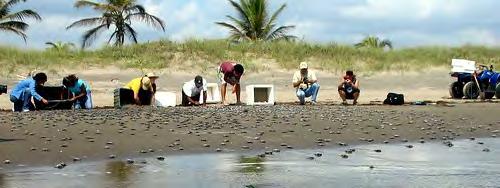
12 minute read
1 Williamson County Regional
from Rescue Magazine 2020 Edition
by Ron

Advertisement
Yes, us, AGAIN!!! We are Zeus and Perseus and we have been waiting forever, getting closer and closer to being in rescue a year already! We are a pair of adult male piggies and have gotten to enjoy life in several different foster homes. We are very handsome, but Perseus is also a little shy. We would like a home with lots of space to play and run as we are energetic young bucks.


Austin Guinea Pig Rescue is a 501(c)(3) non-profit organization dedicated to rescuing and rehoming guinea pigs, chinchillas, hamsters, gerbils, mice, degus and hedgehogs in the Austin, Texas area. All of our animals are in private foster homes and an online application with a follow-up phone call with one of our board members is required. The adoption fee for guinea pigs is $25, for hamsters, gerbils, and mice $10, for chinchillas, degus, rabbits, and hedgehogs is $65. We do not do same day adoptions. Once a submitted foster or adoption application has been reviewed, yo pg.28u can make an appointment to meet the animals. We do not have a public or drop-in facility. www.thevatruthkilleen.com





By S.P.C.A leash Law State of Texas
Lin, Doris. "Overview of Animal Cruelty." ThoughtCo, Aug. 28, 2020, thoughtco.com/what-is-animalcruelty-127560.
The term "animal cruelty" gets thrown around a lot, but an animal activist's definition of animal cruelty may be very different from that of a hunter, a vivisector or a farmer. There is also a legal definition of "animal cruelty" that varies by state in the U.S., to confuse things further. Essentially, though, animal cruelty boils down to inhumane acts against animals of all walks of life, including starving domesticated pets, torturing any creatures and excessive killing of animals for sport. Animal Cruelty Law in the United States In the United States, there is no federal animal cruelty law. While some federal laws, like the Animal Welfare Act, the Marine Mammal Protection Act or the Endangered Species Act restrict when or how certain animals in certain situations may be harmed or killed, these federal laws do not cover the more typical case, such as the person who intentionally kills the neighbor's dog. Every state has an animal cruelty statute, and some offer stronger protections than others. Hence, the legal definition of "animal cruelty" will vary according to which state you are in, and some places have very large exemptions. For example, most states have exemptions for wildlife, animals in laboratories, and common agricultural practices, such as debeaking or castration. Some states exempt rodeos, zoos, circuses and pest control. However, some states may also have separate laws banning practices like cockfighting, dog fighting or horse slaughter — activities observed as inhumane by the majority of Americans. Where the legal definition is lacking, at least for animal rights activists, is in protecting all creatures from unnecessary suffering at the hands of mankind. In any case, if someone is found guilty of animal cruelty, penalties also vary by state. Most states provide for the seizure of the animal victims and reimbursement for expenses for the animals' care, and while some allow counseling or community service as part of the sentencing, twenty-three states have felony penalties of over a year in prison for animal cruelty. For more information, the Animal Legal and Historic Center provides an excellent, detailed overview of animal cruelty statutes in the U.S. To find your state's animal cruelty statute, go to the Center's site and choose your state from the drop-down menu on the left. The Common Understanding Animal cruelty cases make headlines around the country every day, whether it's the person who kills the neighbor's cat, the hoarder of sick and dying animals, or the family whose starving, freezing dog is tied up outside in the middle of winter. These acts would likely constitute animal cruelty under any state's animal cruelty statute, and would also fit with the public's common understanding of the term. However, when it comes to animals other than cats and dogs, peoples' concept of the term "animal cruelty" varies greatly. Most animal activists would say that traditional agricultural practices such as debeaking, tail docking, castration, and confinement on factory farms are animal cruelty. Although some people do agree, as evidenced by the passage of Prop 2 in California, factory farmers and most other states' animal cruelty laws haven't yet adopted these same values. While some might base their definition of "animal cruelty" on how much the animal suffers or feels pain during death, the amount of suffering is not relevant for animal rights activists because the animals are deprived of their right to live and exist free of human use and abuse.
Some may also base their definition on which type of animal is involved or how intelligent they perceive that animal to be. The slaughter of dogs, horses or whales for meat may be the epitome of animal cruelty to some, while the killing of cows, pigs, and chickens are acceptable to those same individuals. Similarly, to some, the killing of animals for fur or cosmetics testing may constitute unacceptable animal cruelty while the killing of animals for food is acceptable.




Among the general public, the more culturally beloved the animal is and the more unusual the harm is, the more likely they are to be outraged and label the harm to that animal as "animal cruelty." To animal activists, a much wider range of harms is called "animal cruelty." Animal rights activists would argue that cruelty is cruelty, regardless of how common or legal the harm is.




To Sponsor this Page
Contact rescuemagazine@yahoo.com or 254-231-3690 for info.








(254) 933-6780 I 2509 S. Loop 121, Belton, TX I Mon-Sat 10:30am-3:30pm Closed on Sunday No wre-openedfor adoptions


SOLA GRATIA OB'SERVATORY :Moody, Texas

About This Shelter
The Bell County Animal Shelter is a joint effort between the City of Belton and the County of Bell. The facility is a state of the art 10,000 sq. ft. building. We have 48 dog runs and 63 cat cages. We have anoutside p lay area ancf an inside play area. Come check it out! We are always in need of volunteers also, just come fill out a volunteer application and come in w henyou can. Adoption prices: Unaltered dog: $50 Altered dog $60 Unaltered cat $20 altered cat 5 60. Failure toabideby the contract can result in seizure of the animal andcitations. Contact this shelter on how you can help. Prices subject to change please call for up to date information.




You‛ll need an old T-shirt, a tennis ball and a pair of scissors to whip up this totally tuggable dog toy. Simply lay your shirt flat and cut across in three strategic places, according to She Knows, then wrap the ball inside two of the pieces. Use the smallest piece of shirt to cinch the toy together. Cut the remaining pieces of cloth into strips and braid.

Easiest dog toy. Just a old sock colored works well. Just insert empty water bottle and tie a knot. hours of fun..



We are so grateful for the service of our nation’s retired Police K-9 and Military Working Dog Heroes that we want to honor them in retirement, and ensure the best quality of life for them, by providing assistance with medical costs, food and end of duty services. We rely on donors like you to fund our project , because there are no public funds for police and military working dogs.
We are now working with Congress to change that with the K-9 Hero Act.
For the last three years Project K-9 Hero has been working on the K-9 Hero Act in coordination with Congressman Ron Wright and his office. Right now Project K-9 Hero, Congress, and the Senate are gathering support to take this bill to a vote.
The K-9 Hero Act was a vision we had at Project K-9 Hero and a vision our Founder, Jason Johnson, had over many years on how we can take funding from the federal government and help give that to non-profits to spend on medical bills for retired federal K-9s.
This bill will allow for any military working dog or federal law enforcement K-9s to seek services through non-profits like Project K-9 Hero and allow us as an organization to take in grant money to spend specifically on medical bills for those dogs.
This bill will allocate $5,000,000 of federal grant funds each fiscal year from 2021 through 2025.
The future of retired working dogs with respect to ownership and provision of medical services is often unclear and the medical treatment required by many former working dogs is significant enough that it creates a hardship for the individuals, often former partners, who take in these canine heroes. At Project K-9 Hero we set in to fill this gap.
This bill will help us at Project K-9 Hero free up some of our other donations where we can help spend it on a deputy sheriff dog or a state police dog or a city dog. Not only does it impact our federal community but it will impact our local and state communities as well.
Jason Johnson states, “For me it’s a legacy as the Founder of Project K-9 Hero. I want to make sure that the work is being carried on for generations to come. It’s time our government take into consideration that if we’re going to use them and treat them like heroes when they’re on duty and during their service that we're going to treat them the same way in retirement.”
We encourage you to reach out to your Senator or Congressman to ask them to support H.R. 5081, The K-9 Hero Act. These heroes spent their entire careers protecting us. Now it’s our turn to protect them. ead the status of this bill here: https://www.congress.gov/bill/116th-congress/house-bill/5081/text


TECOLUTLA TURTLE PRESERVATION PROJECT Tecolutla Turtle Preservation Project 1411 W 10th St, % Rick Wilson Cleveland OH, 44113

*see us at the Extravaganza
USA (484) 474-0055 https://www.saveloraturtles.org
The mission of the Tecolutla Turtle Preservation Project is to support the protection and conservation of marine turtles, particularly Kemp’s ridley sea turtles in Tecolutla, Veracruz, Mexico.
We provide financial support to Vida Milenaria, a grassroots preservation effort in Tecolutla, Mexico that has helped protect hundreds of thousands of Kemp's ridley sea turtle nests in the past 35 years. The founder of this effort, Fernando Manzano, is featured in the documentary Papa Tortuga , which has aired on Public Television as part of the Natural Heroes series. The documentary has also been featured in a number of film festivals throughout the United Sta



SOLA GRATIA OB'SERVATORY : Moody, Texas




(888) 542-5163 I bluebonnetequine.org
Amanda

Jigsaw
Buela Status
A rrived at the Rescue A rrived in 2019 A vailable
Newly Available for
Adoptio n
Adoptio n Fee $650

Trenadie
Status
About Thi s Rescue Bluebonnet Equine Humane Society (BEHS) is a 501 (c)3 nonprofit organization formed in March 2005. Our mission is to improve the lives of e quines by educating and helping owners, assisting law enforcement agencies, rehabilitating abused and neglected equines, and placing them into safe, permanent homes. All horses and other equines adopted from BEHS are castrated if male or a dopted out with nobreeding contracts if female. BEHS provides protection and support to the horses in our program for life. The organization relies on a robust foster home network to ensure horses receive hands-on, oneon-one care. BEHS strives to achieve our mission by building a welcoming, transparent environment. Contact this rescue on howyou can help.
Sponsor this page








